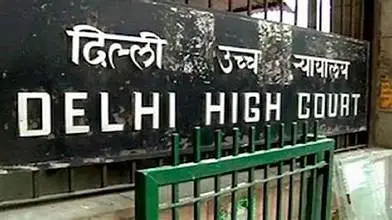The Delhi High Court has rejected a trademark infringement suit filed by Kohinoor Seed Fields India Private Limited against Veda Seed Science Private Limited on the grounds that the alleged trademark infringement did not take place in Delhi.
The single-judge Bench of Justice Amit Bansal held that since Kohinoor failed to show that any part of the cause of action arose within the territorial jurisdiction of this Court, it lacked jurisdiction to entertain the suit.
The High Court further observed that Kohinoor Seed could not maintain the suit in Delhi merely because its head office was located in the capital, while the alleged trademark infringement occurred elsewhere, and the company had offices in those jurisdictions too.
Kohinoor, having a registered office in Delhi, approached the High Court in November 2022 seeking a permanent injunction against Guntur-based agro-input company Veda Seed for allegedly infringing its registered trademarks—TADAAKHA, SADANAND, and BASANT—by marketing BT cotton hybrids under deceptively similar names including VEDA TADAAKHA GOLD, VEDA SADANAND GOLD, and VEDA BASANT GOLD.
The two companies had a co-marketing arrangement since 2014, most recently formalised through a marketing agreement dated January 1, 2022.
Kohinoor terminated this agreement in late 2022 alleging that Veda was misusing its trademarks to promote unauthorised products ahead of the 2023 Kharif season.
Veda challenged the maintainability of the suit on territorial grounds.
Senior Advocate Raj Shekhar Rao, representing Veda, contended that Kohinoor had deliberately suppressed material facts, including that it has branch offices in Telangana and Andhra Pradesh, which were actively used for licensing, invoicing and distribution of seeds.
He argued that no sales by Veda Seed were made in Delhi, adding that the company held no licence to market seeds in Delhi.
He said the alleged infringing listings on e-commerce platforms like IndiaMart were made by third-party dealers and not by Veda Seed itself.
The single-judge Bench noted that there was no pleading or evidence of the defendant targeting Delhi consumers or conducting business in Delhi.
Referring to the screenshots submitted by Kohinoor identifying third-party sellers located in Karnataka and Andhra Pradesh, the High Court said that even if the defendant’s products were shown available on India Mart and Kalgudi, the defendant could not be held responsible for the same.
It further dismissed Kohinoor’s claim that the Delhi head office alone was sufficient to confer jurisdiction under Section 134(2) of the Trade Marks Act, 1999.
Invoking the Supreme Court’s ruling in Indian Performing Rights Society v. Sanjay Dalia and the Delhi High Court’s landmark Ultra Home Construction decision, the single-judge Bench said that the two rulings made it clear that while plaintiffs may sue in the jurisdiction where they carried on business, they could not bypass the appropriate forum when they also maintained offices at the place where the cause of action arose.
It also clarified that Kohinoor’s brief reference to the marketing agreement executed in Delhi was not sufficient to establish jurisdiction, particularly since the suit was framed solely as one for trademark infringement and not for breach of contract.
The High Court directed Kohinoor to move the court having appropriate jurisdiction.


